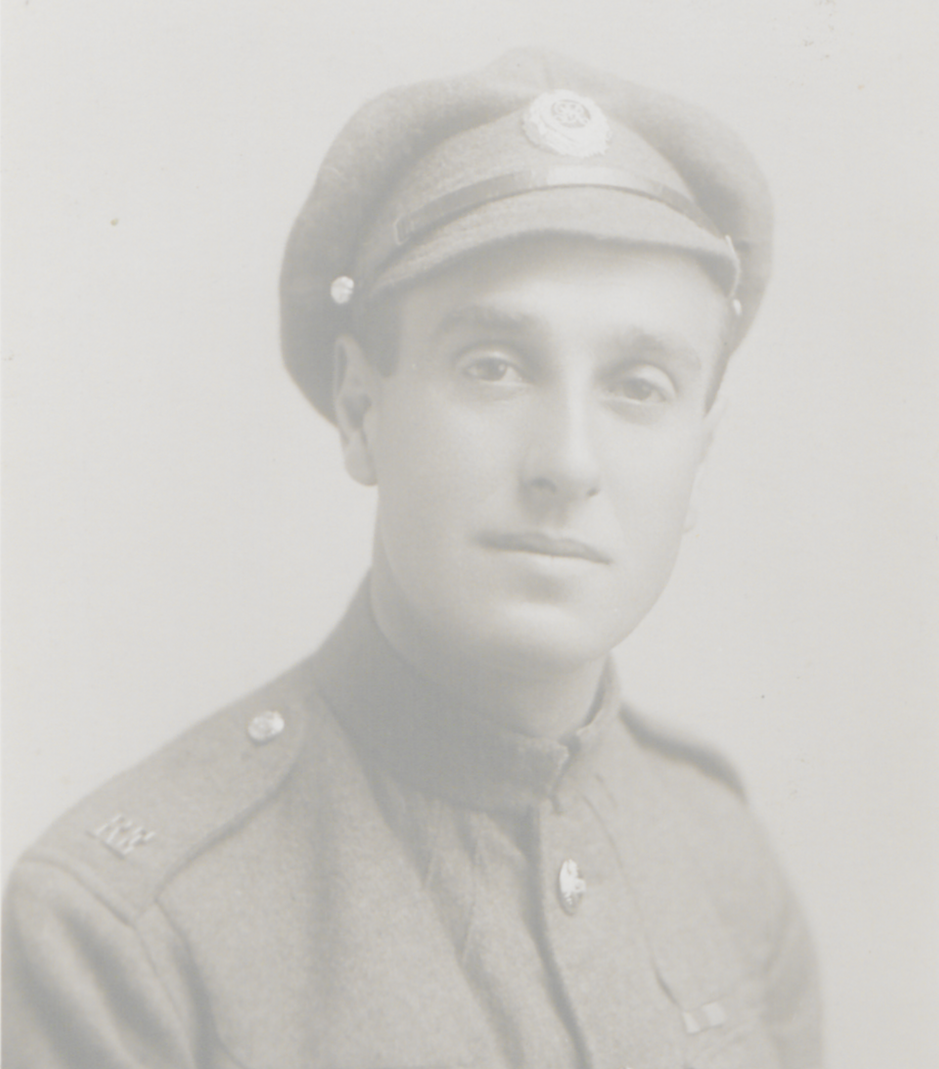The extraordinary story of
COMPANY SERJEANT MAJOR
Alfred Furlonger
Light Railway Company, Royal Engineers
The transport and delivery of supplies, ammunition and materials is vital during war time. The very best soldiers stand little chance if their ammunition runs out or if they have nothing to eat and drink. Throughout the World Wars hundreds of thousands of civilians worked tirelessly to produce everything the armed forces needed to continue the fight, but the most dangerous task was the delivery of those supplies to the front line.
In Wimbledon
Alfred Henry Furlonger was from Palmerston Road in Wimbledon. His father worked on the railways and his son would follow in his footsteps, straight from school. By the age of 14, Alfred was recorded as an ‘office lad’ at a railway company and later rose to be a goods clerk. By 1914, he had risen to the position of ‘engineer’ and it is suggested that he was working on the railways in Chile.
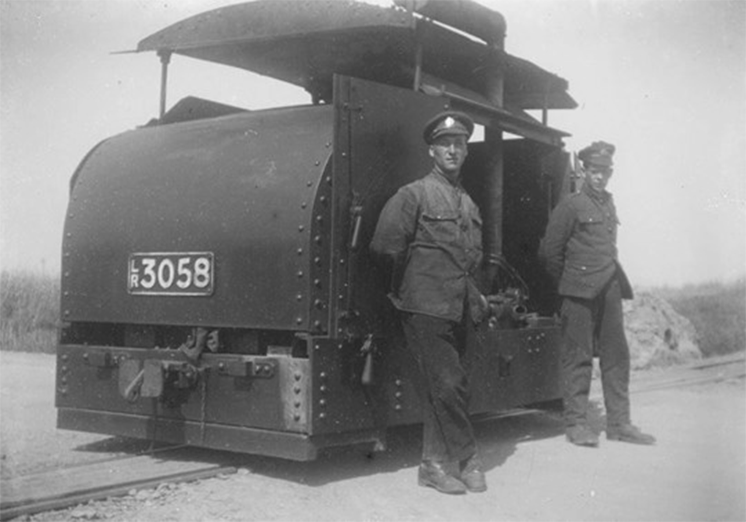

Shortly after the outbreak of war, Alfred returned to the UK and enlisted into the Royal Engineers. In early 1917, the Royal Engineers on the Western Front formed several Light Railway Companies. Men with experience of railway work, such as Alfred, were transferred to these new units to fulfil all the specialist roles required. The light railways were used to transport men, supplies and ammunition up to the front line and bring the wounded back to the medical units behind the lines.
By 1917, Alfred was an acting serjeant with the 29th Light Railway Operating company, which was operating close to the Ypres Salient in Belgium. That autumn, during the Third Battle of Ypres, Alfred was awarded the Distinguished Conduct Medal (DCM) for the follow action:
For conspicuous gallantry and devotion to duty. He was in charge of trains evacuating the wounded from an aid post. The enemy shelled the line and cut it in seven places, preventing a train from reaching the aid post. He at once organised a party, and had the line repaired under heavy fire. When one of the trucks was hit by a shell he transferred the wounded on it to another truck, and got the train away to safety. He showed great courage and ability throughout the day.


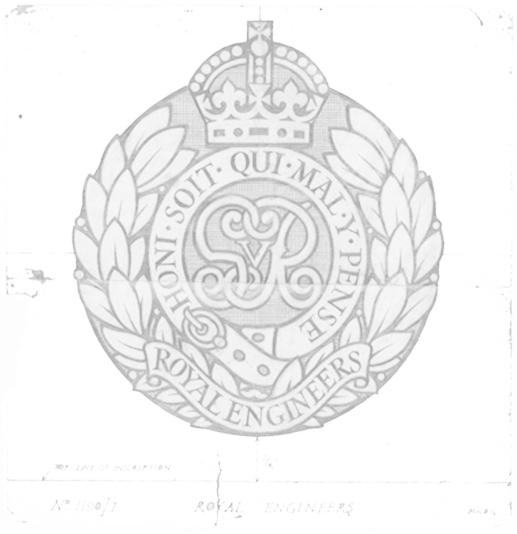
By April 1918, Alfred has been promoted to the rank of company sergeant major, and his superiors were keen that he undertake training to become an officer. However, events would mean that Alfred never go that opportunity.
On 30th April 1918, Alfred was working on the railway close to Poperinge in Belgium. A train of ammunition had just been loaded ready to go up to the front line. The engine had been detached when suddenly a fire broke out on one of the trucks. Realising that an explosion would be catastrophic, Alfred immediately ordered the engine to be recoupled so as to tow the burning truck away from the rest of the train.


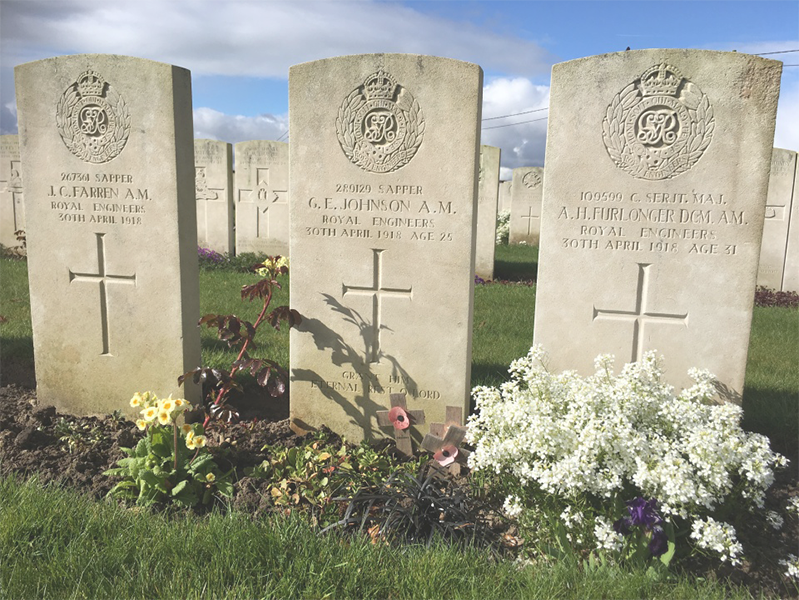
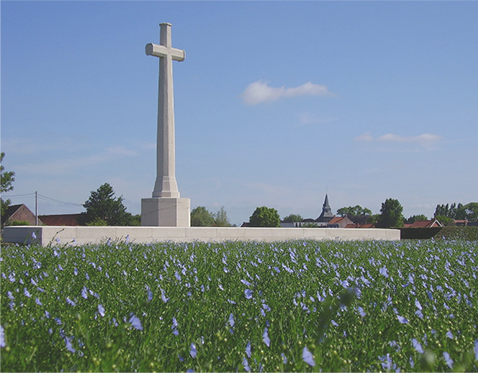
As soon as this was done, Alfred ordered the engine driver to pull the burning truck away from the rest of the ammunition train. Once they had reached a safe distance, Alfred and Sapper Joe Farren tried to uncouple the engine from the blazing truck. It was at this moment that the ammunition truck exploded, completely wrecking the engine and the trucks, and killing Alfred and the crew who were helping him.
Alfred actions undoubtly saved many lives. His gallantry and that of his men did not go unrecognised. Alfred and four of his men were all awarded the Albert Medal, a prestigious and rare award. Today, Alfred Furlonger is buried in Harnghe (Bandaghem) Military Cemetery in Belgium.
Alfred Furlonger
1887 - 1918
We'd love to hear your story
We use necessary cookies to make our site work. We'd also like to set analytics cookies that help us make improvements by measuring how you use the site. These will be set only if you accept.

